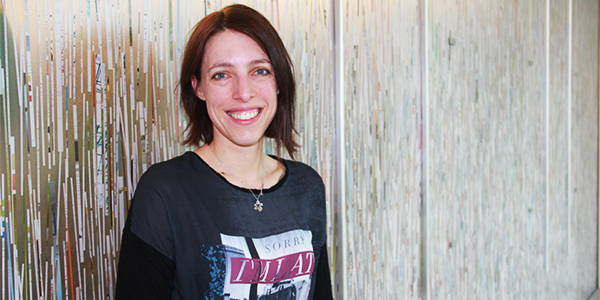Department Spotlight: Dr. Pauline Boeckxstaens

Pauline Boeckxstaens – post-doctoral fellow in the PACE-in multimorbidity project at Western University
Dr. Pauline Boeckxstaens’ heart is in family practice. The family physician has worked as part of an inter-professional team in a community health centre, in a deprived area of Ghent, Belgium, since 2006.
“I love to work with vulnerable populations with complex needs.”
Dr. Boeckxstaens is also a researcher in the department of family medicine and primary health care at Ghent University.
Her PhD, “Multimorbidity a qualitative and quantitative exploration in primary care,” worked through the definition and measurement of multimorbidity. And with the help of Dr. Martin Fortin's previous work, she was better able to understand the methodological challenges of multimorbidity research. She later met Dr. Fortin, co-lead of Patient-Centred Innovations for Persons with Multimorbidity (PACE), in 2015.
Today, Dr. Boeckxstaens joins the Centre for Studies in Family Medicine at the Schulich School of Medicine & Dentistry, Western University, as a post-doctoral fellow on the PACE team.
When caring for people with multiple chronic conditions, Dr. Boeckxstaens believes physicians should aim for goal-oriented care and uphold the goal of the patient.
“[Patients with] multi-chronic diseases might get overwhelmed by our targets,” said Dr. Boeckxstaens. “[And] we might lose target of the person.”
Goal-oriented care focuses on the patients’ individual health goals and how well these goals are being met. It is not guided by disease-specific processes or outcomes. This approach is grounded in shared-decision making and patient-empowerment, with the patient selecting the outcome of the highest priority and the provider proposing treatment strategies which assist in achieving that outcome.
However, in her previous research, Dr. Boeckxstaens ran into barriers when conducting qualitative interviews eliciting and measuring the delivery, as well as trying to extract her patients’ goals.
This made it difficult to assess whether the goal-oriented approach is an appropriate way of delivering care.
For the next eight months, Dr. Boeckxstaens will assist in the qualitative inquiries within PACE and perform a secondary analysis of the qualitative data collected within PACE using the goal oriented framework while supervised by Dr. Judith Belle Brown. She will also perform a review on measures which allow for a quantitative evaluation of goal-oriented care, as a TUTOR-PHC trainee of the 2016 cohort, supervised by Dr. Martin Fortin.
She is excited to build a working relationship with the Centre for Studies in Family Medicine and hopes to further understand the concept of goal-oriented care by linking it to the outstanding expertise of this department on patient-centered care in order to better understand how to develop ‘goal-oriented/patient-centered’ care for patients with multimorbidity.
“This is a huge opportunity [for me] to get this link with this department and to see and understand the difference in the two [concepts] and whether there is a difference [between goal-oriented and patient-centered care].”
Dr. Boeckxstaens has moved to London, Canada, with her husband Pieter, a research fellow at Robarts Clinical Trials, and their two sons, Wout (Walt), seven years old, and Tuur (short for Arthur), almost two years old.
This is a first for the family of four; traveling all together for work.
After promising their eldest son that they would go to see the Niagara Falls, the family made the trip on their third day in Canada.
Dr. Boeckxstaens says the children are adapting easily to life here and that the family is impressed with the nature in London. They are however taking suggestions for summer holidays.
As for reflecting on this journey, Dr. Boeckxstaens said, “I am happy to focus on research for this time, but my love is with family practice. I want to do research to better the care I provide. If there is going to be anything I miss from home, it will be my patients.”








